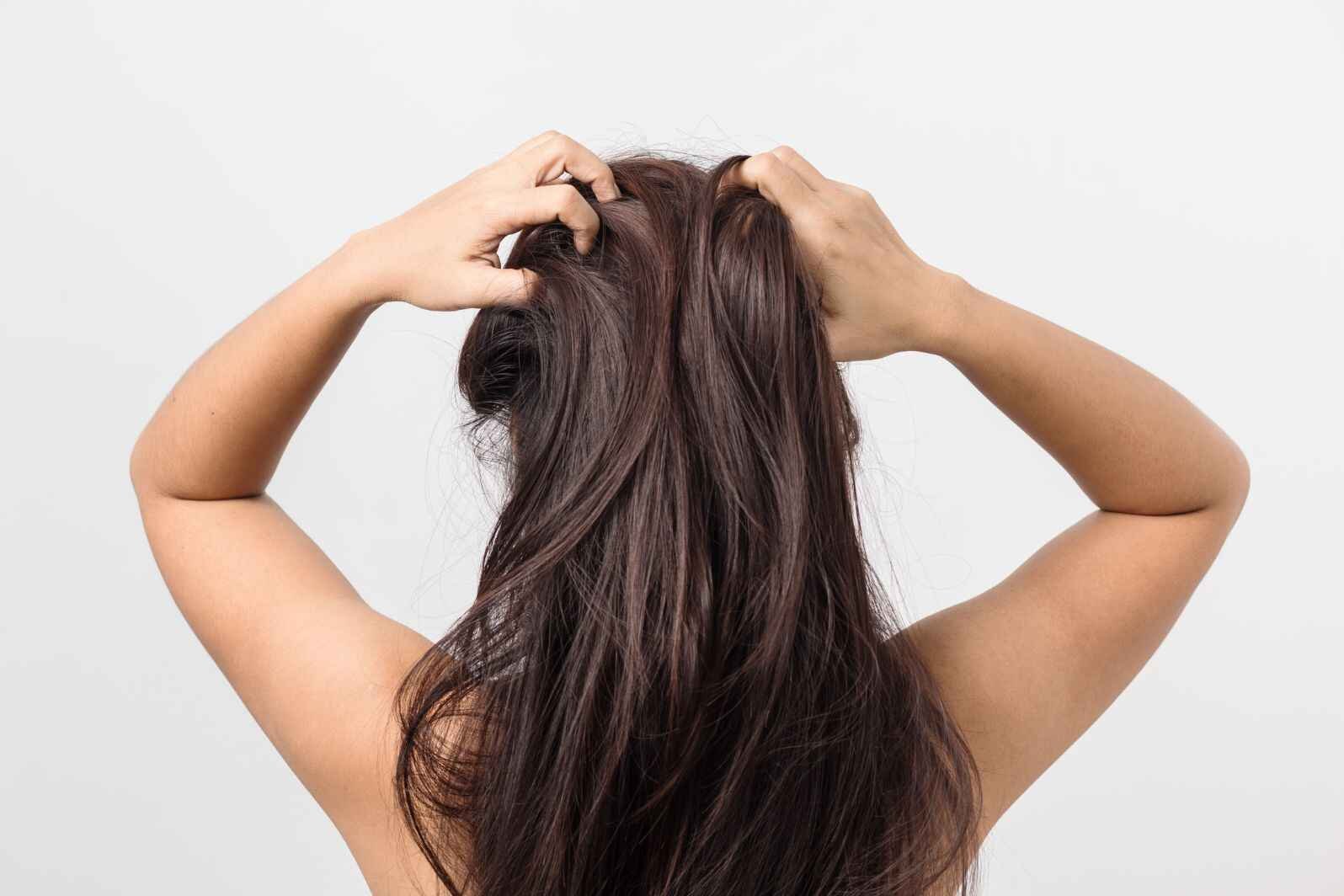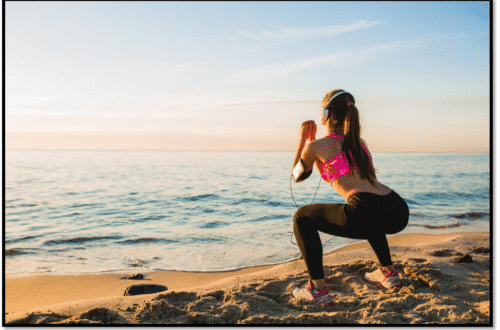When we think about hair loss, the things that come to mind are stress, pollution, genetics, and poor diet. And although all of these are true, there is another powerful solution that many people tend to forget – the scalp microbiome. In layman’s words, lots of little organisms, such as bacteria, fungi and yeast, are living on your scalp. Together, they make up a tiny ecosystem called the scalp microbiome.
Similar to the gut microbiome, which is involved in digestion, there’s a scalp microbiome that plays a role in maintaining the health of your scalp and hair. But if this balance breaks, various problems can occur, including dandruff and itchiness to even hair fall. Let’s understand this in detail.
What is the Scalp Microbiome?
Our skin – scalp included – is not empty. It’s covered in all sorts of microorganisms. These are not dangerous if they remain in equilibrium. Some are even helpful. They protect the scalp, maintain the skin barrier and prevent harmful germs from growing.
The scalp microbiome includes:
- Bacteria — such as staphylococcus and cutibacterium.
- Fungi — mostly Malassezia, associated with dandruff.
- Yeast and Mites – in very low counts and are not harmful.
All these combine to form an effective barrier for the scalp.
How Does It Impact Hair Health?
Your scalp is your soil, and your hair is your plants. Whether the soil is good or bad, plants thrive. If the soil weakens or succumbs to infection, plants die. The same goes for your scalp and hair.
- How The Scalp Microbiome Is In Balance:
- Hair grows stronger.
- Less dandruff and itching.
- Less oily scalp.
But when the balance is lost:
Unwelcome bacteria and fungi get out of control.
- Scalp becomes inflamed and itchy.
- Hair roots become weak, hair starts falling.
- Connection of Scalp Microbiome with Hair Loss
- Dandruff and Seborrheic Dermatitis
Link Between Scalp Microbiome and Hair Loss
Dandruff is among the first symptoms of an unwell scalp microbiome. Malassezia fungus overgrowth is what is responsible for the white flakes and itching. Persistent stratching eventually damages hair roots resulting in hair fall.
- Folliculitis (Infection of Hair Follicles)
Somehow, bad bacteria can start to flourish down in the hair follicles.” This results in tiny lumps on the head. Untreated, it can clog follicles and inhibit hair growth.
- Inflammation
A microbiome out of equilibrium can result in inflammation. The scalp will become red, oily, or flaky. and Chronic inflammation can weaken hair follicles and cause shedding.
- Excess Sebum Production
The scalp secretes a natural oil known as sebum. If sebum-digesting microbes proliferate too much, it leads to irritation and weak roots.
- Barrier Damage
A balanced microbiome maintains the skin barrier in the scalp. When it’s damaged, pollution, sweat and toxins are allowed into the scalp much easier. This further accelerates hair thinning.
Factors Disrupting the Cutaneous Microbiome of the Scalp
Strong Shampoos: Shampoos containing strong chemicals end up killing beneficial as well as bad bacteria.
Excessive Washing or Inadequate Washing : Excessive shampooing leads to stripping of natural oils. Too infrequent washing allows the bad bugs to overgrow.
Diet: Over consumption of sugar or junk food can lead to fungi overgrowth.
Stress: Stress alters the hormone levels also influencing the health of the scalp.
Dirt and Sweat: Dirt and moisture provide a favorable environment for microbes.
Too Much Oil: Thick oils trap dust and can lead to more fungus growth.
How to Keep a Healthy Scalp Biome
1. Use Mild Shampoos
Choose sulphate-free or herbal shampoos. These cleanse the scalp without killing off good microbes.
2. Avoid Overuse of Chemicals
Hairsprays, gels and colour treatments upset the scalp’s equilibrium. Use them less often.
3. Wash Hair as Needed
If your hair is oily, then it needs to be washed every 2–3 days, and if it’s dry, you can extend it to 3–4 days. Balance is key.
4. Eat a Balanced Diet
Add in fresh fruits, veggies, nuts, seeds, and probiotics in the form of curd. They support healthy bacteria.
3. Reduce Stress
Do yoga, meditate or take a short walk. Scalp and hair benefit from stress reduction.
4. Stay Hydrated
Drinking plenty of water supports the scalp to be more rich and less itchy.
5. Use Natural Remedies
- Aloe vera soothes the scalp.
- Neem has antibacterial properties.
- A litle bit of coconot oil will help to avoid drying.
6. Probiotic Hair Products
A few new shampoos and serums include probiotics (good bacteria) that fix the scalp microbiome.
When to See a Doctor?
if you just continues to lose hair even after being taken care of, it’s time that you should see your dermatologist. Signs you should not ignore:
- Sudden patchy hair loss.
- Reactions Characterised by sores or a redness on the scalp or pus filled pimples on the scalp.
- Too much dandruff and itching.
- Hair thinning at a young age.
Doctors can perform scalp tests to diagnose microbiome imbalances and may be able to prescribe appropriate treatment.
Future of Scalp Microbiome Research
Researchers are learning more about how probiotics, prebiotics and other microbiome-friendly products can aid in hair growth. And if gut health supplements became a thing, scalp health treatments could surely become a thing. This is cutting-edge science that has the potential to alter the way we treat hair loss.
Conclusion
The scalp microbiome is our hair’s hidden protector. When in balance, it nourishes the scalp, decreases dandruff, and encourages strong hair growth. But when it’s disrupted, it can cause itching, infection and hair loss. You can protect your microbiome with gentle shampoos and a healthy diet, avoiding harsh chemicals, stress reduction and natural remedies that help you get to the root of the problem…and ultimately have the hair you always wanted and deserve!
FAQs
Q1. Could scalp bacteria really be to blame for hair loss?
Yes, harmful bacteria / fungus can cause infections and inflammation and tend to weaken hair roots resulting in hair fall.
Q2. What makes my scalp microbiome unhealthy?
Symptoms might be dandruff, itching, redness, too much oil or frequent scalp infections.
Q3. Can probiotics support the health of my scalp?
Yes, probiotics support good bacteria. Some new hair products also contain probiotics to rebalance the scalp microbiome.
Q4. Is hair fall always associated with dandruff?
Not always. That is not a case where mild dandruff is causing significant hair loss. But persistent dandruff and scratching can weaken follicles.
Q5. What is the best shampoo for scalp microbiome?
Opt for gentle, sulphate free or herbal based shampoos which won’t strip your hair of natural oil and will maintain the scalp’s balance.





